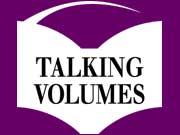Audio
Photos
More from MPR
Resources
Your Voice
| ||||||||||||||||||
Truth vs. Fiction in Augusten Burroughs' memoir, "Dry"
November 3, 2003
 |
| "Dry" (Courtesy of St. Martin's Press) |
Augusten Burroughs's memoir, "Dry," is an unflinching look at one alcoholic's crooked journey towards an unsure sobriety. Told in the first person, Burroughs takes us down a dark and harrowing path recounting his life as a strung-out, well-paid ad executive who is forced to accept treatment for his drinking problem or lose his job. It's an interesting concept, the forced epiphany, and one Burroughs doesn't take too much time to ponder. Some people have epiphanies, and others simply have epiphany thrust upon them.
Burroughs adroitly weaves back story throughout the forward action:
When I was thirteen, my crazy mother gave me away to her lunatic psychiatrist, who adopted me. I then lived a life of squalor, pedophiles, no school, and free pills. When I finally escaped, I presented myself to advertising agencies as a self-educated, slightly eccentric youth filled with passion, bursting with ideas. I left out the fact that I didn't know how to spell or that I'd been giving blowjobs since I was thirteen.
He ends up at the Proud Institute, a gay/lesbian rehab center in deepest, darkest Minnesota, where he learns his path to sobriety will not include modern architecture and Japanese Koi ponds, but instead indestructible dorm furniture and breaded veal cutlets with a provocative sauce of Velveeta and Half and Half.
Using the image of a sweating martini as his "picture of calm," and bouncing through the program like a rag doll on lithium, Burroughs begins to take part in what turns out to be a very real epiphany for him. He admits his helplessness over alcohol, accepts the bizarre rituals and daily regimes of the clinic, makes some friends with some unlikely characters, and in the end, takes one step toward the rest of his (hopefully) sober life.
Besides being clearly, disturbingly well written, what is also fascinating about Burroughs's book, is that some of his memories are made up. There's a tiny blurb in the beginning that reads: This memoir is based on my experiences over a ten-year period. Names have been changed, characters combined, and events compressed. Certain episodes are imaginative re-creation, and those episodes are not intended to portray actual events.
 | |||
Criticized by some for this fictional slant and applauded by others, "Dry" sparks a debate that asks us to take a hard look at what genre the memoir really falls into. fiction, non-fiction or creative non-fiction? Truman Capote created the creative non-fiction genre with his horrific yet journalistic story about the murder of the Clutter family in his book "In Cold Blood." No one before had taken a real event and fictionalized it, so that while the plot points remained, like rungs on a ladder, the open air between the points were filled with Capote's own thoughts and ideas, though subjective they may be.
Some of Burroughs' strongest scenes and characters are made up. The woman who stands up in support group and says that even though she found a lump in her breast in the shower one morning and is living on borrowed time, she would "rather have this one day sober than a whole lot of days drunk," is made up. This immediately makes the reader wonder, what else is made up? What is true? But then the story sweeps you along, and the very real sentiments of the book come through, and in the end, like with all good stories, you forget to wonder, and you just read.
Pablo Picasso once said, "Art is a lie that makes us realize the truth," but step five in the Alcoholics Anonymous handbook states: "We admitted to God, to ourselves and to another human being the exact nature of our wrongs." So between these two sentiments, where does Burroughs' memoir lie? Perhaps in both. Reality is messy, unpredictable, often without pattern. Some say it is the storyteller's duty to stitch a pattern from reality in order to present a picture that can be truly seen.
If we had to walk through a decade of the minutia of Burroughs' ups and downs, what we might hold in our hands in an 800-page journal instead of a novel that may encourage and influence many who read it. "Dry" gives us a chance to walk in the shoes of one man having a hard time standing up. It takes many real events, and some not so real, and creates a vivid picture we can all see.
|
News Headlines
|
Related Subjects
|

